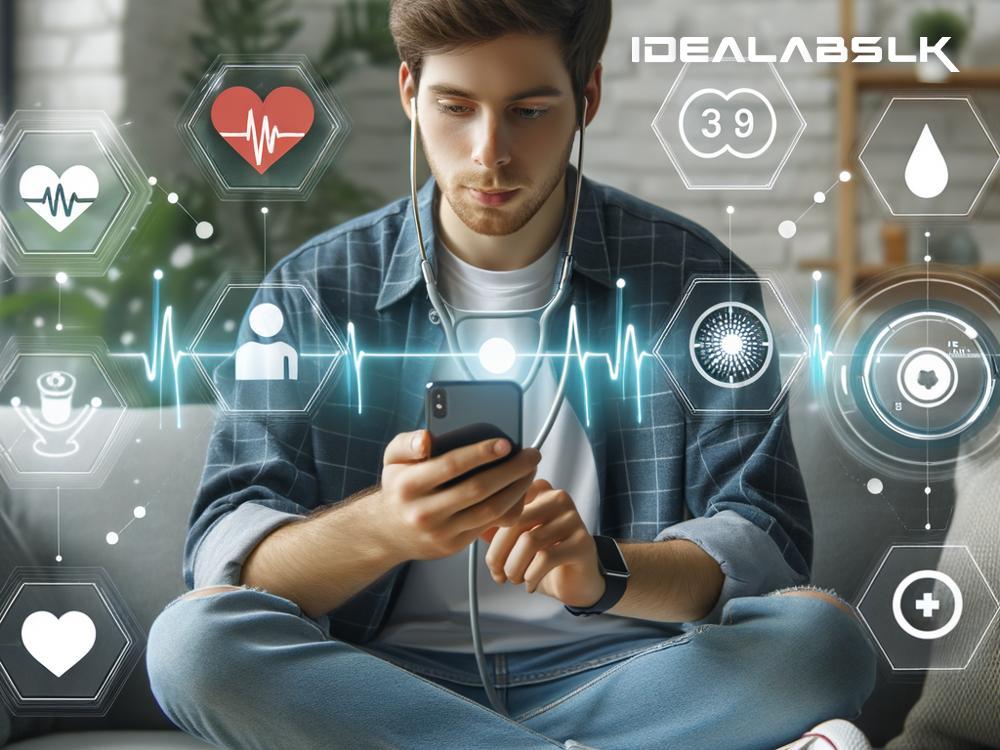How Health Tech is Revolutionizing Personal Care: The Rise of Virtual Health Assistants and AI-Powered Apps
In the last few years, technology has taken a dramatic leap forward, shaping the way we live, work, and take care of our health. From wearable gadgets that count our steps to apps that track our sleep patterns, technology's integration into our daily lives is undeniable. However, it's the rise of virtual health assistants and AI-powered apps that's truly revolutionizing personal care, making it more accessible, personalized, and efficient than ever before.
What are Virtual Health Assistants and AI-Powered Apps?
Virtual Health Assistants (VHAs) are like the helpful friends on your phone or computer who know a lot about health. They use artificial intelligence (AI) to talk to you, understand your questions, and provide you with health advice or connect you with a doctor. On the other hand, AI-powered apps use smart technology to help manage your health and wellness by tracking your activities, offering personalized tips, and even predicting potential health issues.
How are They Changing Personal Care?
-
Making Healthcare More Accessible: One of the biggest challenges in healthcare has always been access. VHAs and AI-powered apps are breaking down these barriers by being available anytime and anywhere. This means you can get health advice at 3 AM or monitor your heart rate while hiking up a mountain.
-
Personalizing Your Health Experience: Everyone's health journey is unique, and these technologies understand that. Using data like your health history, daily habits, and even genetic information, they can offer advice and recommendations that are specifically tailored to you. This personal touch can make all the difference in achieving your health goals.
-
Enhancing Preventive Care: Prevention is better than cure, and these tools are the champions of preventive health. By constantly monitoring your health data, they can alert you to potential health issues before they become serious. This can range from reminding you to hydrate more to detecting early signs of a health condition through symptom tracking.
-
Supporting Chronic Disease Management: For those managing chronic conditions, VHAs and AI apps can be a game-changer. They can help track symptoms, medication schedules, and even offer dietary or lifestyle advice to help manage conditions like diabetes, heart disease, or anxiety.
-
Streamlining the Healthcare System: Beyond personal care, these technologies are also making the entire healthcare system more efficient. They can reduce the workload of healthcare professionals by handling routine queries, which allows doctors and nurses to focus on more complex cases.
Real-life Examples and Success Stories
-
Virtual Consultations: With the pandemic, virtual consultations became the norm, but the convenience and efficiency they offer mean they're here to stay. VHAs can help schedule these appointments, remind you about them, and even follow up with care instructions.
-
Wearable Health Trackers: Devices like the Fitbit or Apple Watch are more than fitness trackers. They monitor heart rates, detect irregular heart rhythms, and can even call for help if they detect a fall, using AI to keep users safe and healthy.
-
Mental Health Apps: Mental health apps use AI to provide support through techniques like CBT (Cognitive Behavioral Therapy) or by monitoring mood patterns to offer personalized mental health advice.
The Future of Personal Care with Health Tech
The rise of VHAs and AI-powered apps in personal care is just the beginning. As technology evolves, we can expect even more innovative solutions that will continue to transform the healthcare landscape. Imagine smart tattoos that monitor your glucose levels without needing a prick of the finger, or AI that can predict illnesses before symptoms even arise. The possibilities are endless.
While concerns about data privacy and the need for human touch in healthcare are valid, the potential benefits of these technologies in improving access to care, personalization, and efficiency cannot be understated. As we move forward, it’s crucial for tech developers, healthcare providers, and policy-makers to work together to address these challenges, ensuring that the revolution in personal care continues to be a force for good.
In conclusion, the rise of virtual health assistants and AI-powered apps is not just a trend but a transformation that's making personal care more accessible, personalized, and efficient. As we embrace these innovations, the future of personal healthcare looks brighter and more promising than ever before.

